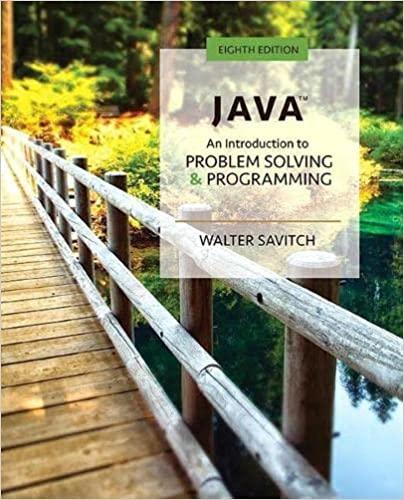Looking for some direction with this lab A Player class. A Player has instance variables for name and height . (Keep height in inches; use
Looking for some direction with this lab
A Player class. A Player has
- instance variables for name and height. (Keep height in inches; use an int.)
- overloaded constructors
- A constructor that takes name and height parameters
- A no-argument constructor
- getters and setters for name and height
- a String toString() method that returns a player's data as a String object
A Team class. A Team has
- an instance variable that is an array of the team's players (i.e., Player[] myTeam)
- an instance variable that indicates the "next open" position of the team array. You may assume that no more than 3 players will be added to a team, but a team might have less than 3 players.
- a no-argument constructor that initializes the player array
- a method void add(Player player) that adds a player to the team
- a method Player[] getCurrentTeamMembers() that returns a player array of all the players currently on the team (note that the team may not have a full roster when this method is called. You should return an array with no "empty" slots.)
- a methodint averageHeight()that returns the average height (in inches) of all the players currently on the team. Your code should handle a team with no members.
- aString toString()method that returns the number of players currently on the team, and their names and heights
A Game class. A Game class has
- a private static Scanner class variable for reading user input from the keyboard
- a methodprivate static Team fillRoster()that uses the Scanner to query the user for all of the players on a Team.
- amainmethod. The main method
- has two Team variables, home and visitor
- usesfillRoster to create the Team object and its associated Player objects for the home team
- usesfillRoster to create the Team object and its associated Player objects for the visting team
- prints a message identifying the team (home or visitor) that has the taller average height
- prints the taller team's roster
- prints the shorter team's roster
A sample execution of the program is attached below.
Enter the home team
Enter team member 1:
Name: Aaron
Height: 73
Enter team member 2:
Name: Abe
Height: 78
Enter team member 3:
Name: Andrew
Height: 80
Enter the visiting team
Enter team member 1:
Name: Bob
Height: 70
Enter team member 2:
Name: Ben
Height: 81
Enter team member 3:
Name: Bill
Height: 78
The home team is taller Taller team roster: Team{numPlayers=3, members=[Player{name='Aaron', height=73}, Player{name='Abe', height=78}, Player{name='Andrew', height=80}]}
Shorter team roster: Team{numPlayers=3, members=[Player{name='Bob', height=70}, Player{name='Ben', height=81}, Player{name='Bill', height=78}]}
Step by Step Solution
There are 3 Steps involved in it
Step: 1

See step-by-step solutions with expert insights and AI powered tools for academic success
Step: 2

Step: 3

Ace Your Homework with AI
Get the answers you need in no time with our AI-driven, step-by-step assistance
Get Started


